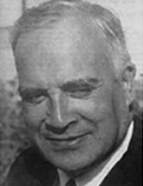

But, like other French masters, Fustel de Coulanges (1830-1889) and more closely Pierre David (1882-1955), he had a predominant taste for the critical-philological method, in the detail of examining the various elements of the text and in the concern to establish the strict meaning of each word, as can be seen in the notes to many of his works. A certain abstractionism in his considerations led him to slip, theoretically at times, into the philosophy of history as understood by Herder, Berdiaeff, Ortega y Gasset and even into his theology, invoking the positions of St Augustine and St Thomas Aquinas ( Algumas reflexões [A few reflections], 1968). Although he was always willing to correct errors pointed out by authoritative critics, there was no significant shift in his views or any profound or notable change in the direction of his historical thinking throughout his long career. It is true that, as a diligent and devoted reader of Marc Bloch — whom he had already praised for A Sociedade Feudal [Feudal Society], describing it as a "truly masterly work" — and had acknowledged the immensely important historiographical contribution of L’Étrange défaite, he also dedicated a long and heartfelt article to Bloch in RPH , promising a more extensive critical examination of his work, Apologie pour l’ histoire ou métier d’historien , a promise he would never fulfil ( RPH , III, 1947, pp. 634-654). He accepted Bloch's definition of history as "the understanding and science of men in time" and as "essentially the science of variation, of what does not repeat itself" (O espírito municipalista [The municipal spirit], 1960). He also embraced the historiographical approach advocated by Lucien Febvre, as evidenced when he quotes him in the epigraph to the final work: "— At the beginning, in the middle, and at the end: the document?" Just the document? — No: at the beginning, in the middle and at the end: the spirit. The spirit that seeks. The spirit that runs among the facts, like fire among the heather" (Formação do Estado português, 1989), but as a whole, his history-writing practices do not match these statements.
This work is financed by national funds through FCT - Foundation for Science and Technology, I.P, in the scope of the projects UIDB/04311/2020 and UIDP/04311/2020.
